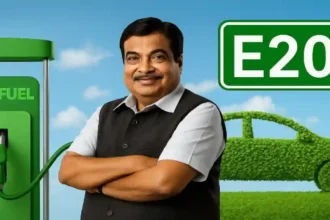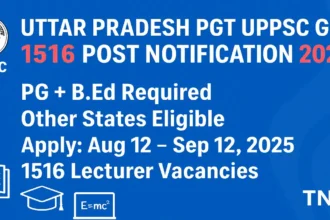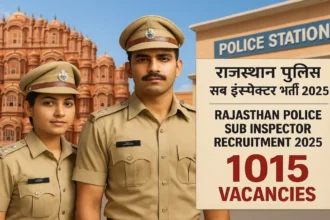Gujarat stretch to be completed by 2027; entire Maharashtra – Sabarmati bullet train project scheduled for 2029.
- Project Scope and Route
- Construction Progress and Milestones
- New Deadline: December 2029
- Budget and Funding
- A Landmark in India’s Infrastructure Growth
- Final Word
- Frequently Asked Questions (FAQs)
- 1. When will the Ahmedabad – Mumbai bullet train project be completed?
- 2. What is the route of the bullet train project?
- 3. What is the current status of construction?
- 4. Why has the bullet train project been delayed?
- 5. What is the total cost of the bullet train project?
- 6. What is the speed of the Ahmedabad – Mumbai bullet train?
- 7. Which technology is being used for this project?
- 8. Will there be trial runs before 2029?
- 9. Who is implementing the bullet train project?
- 10. How will this project benefit India?

Ahmedabad, July 24, 2025 – India’s much anticipated bullet train project, connecting Ahmedabad and Mumbai, has received a new official deadline. As per a written reply submitted by Railway Minister Ashwini Vaishnaw in the Lok Sabha this week, the entire corridor is expected to be operational by December 2029, while the Gujarat section of the route will be ready two years earlier, by December 2027.
This mega infrastructure venture India’s first high speed rail (HSR) corridor was initially announced in 2017 with a projected completion year of 2022. However, due to land acquisition hurdles, especially in Maharashtra, the timeline has been pushed back multiple times. The new statement in Parliament now gives a concrete national outlook: a phased rollout with Gujarat taking the lead.
Project Scope and Route
The Ahmedabad – Mumbai bullet train will span 508 kilometers, covering 12 stations across Maharashtra, Gujarat, and the Union Territory of Dadra and Nagar Haveli. The train will run at a speed of 320 km/h, cutting travel time between Mumbai and Ahmedabad from over 7 hours to just around 2 hours.
The Maharashtra – Sabarmati bullet train project includes critical infrastructural components like:
- A 21 km undersea tunnel near Mumbai
- Elevated viaducts covering major urban and rural stretches
- Multi level terminals at Bandra Kurla Complex and Sabarmati
- Advanced signaling and rolling stock from Japan’s Shinkansen technology
Construction Progress and Milestones
According to data released by the National High Speed Rail Corporation Limited (NHSRCL), construction has picked up significant momentum in recent months.
Over 392 kilometers of piers and 308 kilometers of girders have already been completed.
More than 75% of land acquisition in Maharashtra has been achieved, with Gujarat having completed its land process earlier.
The first train trial in Gujarat is expected in early 2026.
The Gujarat stretch running from Vapi to Sabarmati is on a faster track and is expected to be fully ready by December 2027. This section may become operational independently before the Maharashtra part is completed, according to railway officials.
New Deadline: December 2029
Despite earlier statements from Maharashtra Deputy CM Devendra Fadnavis hinting at a 2028 completion, the central government’s latest update extends the full operational readiness of the bullet train project to December 2029.
This new timeline considers all engineering, environmental, and land related bottlenecks that slowed progress in the past. The Maharashtra – Sabarmati bullet train project, which includes key urban regions such as Thane and Palghar, had been delayed mainly due to political and logistical challenges in Maharashtra.
Now, with most of the land issues resolved and tunnel work initiated, the central government has expressed confidence that the bullet train project is back on track for completion by the end of this decade.
Budget and Funding
The estimated cost of the bullet train project stands at ₹1.08 lakh crore. About 81% of the funding is provided by Japan International Cooperation Agency (JICA) through a soft loan. As of mid-2025:
- Over ₹78,000 crore has already been spent.
- Procurement of rolling stock and signaling equipment from Japan is underway.
- Indigenous training facilities and maintenance depots are being built to support the corridor.
A Landmark in India’s Infrastructure Growth
Once operational, the Ahmedabad – Mumbai bullet train will mark a monumental step in India’s transportation evolution. It is not just a technological marvel but also a statement about the country’s ambitions in high speed infrastructure.
Experts believe that the bullet train project will bring significant economic benefits, including:
- Job creation in the construction and operations sector
- Better regional Connectivity
- Encouragement for industrial development along the corridor
- Reduction in traffic load from air and road transport
Furthermore, the successful completion of the Maharashtra – Sabarmati bullet train project is expected to pave the way for future bullet train corridors across India, including Delhi–Varanasi and Chennai–Mysuru.
Final Word
With a clearer picture now emerging on its timeline, the bullet train project is closer than ever to becoming a reality. The phased approach ensures that Gujarat will benefit sooner, but by 2029, the entire western corridor will be transformed.
For millions of Indians, this is not just about speed it’s about national pride, progress, and next-generation travel.
Stay Connected with The News Drill for more updates. Stay informed. Stay updated. Stay Ahead.
Contact us: contact@thenewsdrill.com
Submit a tip or story: editor@thenewsdrill.com | Visit our Contribute page. Pic source & credits: Third Party Japan Rail
Frequently Asked Questions (FAQs)
1. When will the Ahmedabad – Mumbai bullet train project be completed?
Answer: The complete bullet train project is expected to be operational by December 2029. The Gujarat section (Vapi to Sabarmati) is scheduled for completion by December 2027.
2. What is the route of the bullet train project?
Answer: The Ahmedabad – Mumbai bullet train will cover 508 km, passing through 12 stations in Maharashtra, Gujarat, and Dadra & Nagar Haveli. Major stations include Mumbai (BKC), Thane, Vapi, Surat, Vadodara, and Sabarmati.
3. What is the current status of construction?
Answer: As of mid-2025, over 75% of land acquisition is complete in Maharashtra, and Gujarat construction is in advanced stages. Over 392 km of piers and 308 km of girders have already been constructed.
4. Why has the bullet train project been delayed?
Answer: Delays have mainly been due to land acquisition issues in Maharashtra, environmental clearances, and pandemic related slowdowns. These challenges pushed the deadline from the original 2022 to 2029.
5. What is the total cost of the bullet train project?
Answer: The Maharashtra – Sabarmati bullet train project is estimated to cost around ₹1.08 lakh crore. A major portion (81%) is funded by the Japan International Cooperation Agency (JICA) through a soft loan.
6. What is the speed of the Ahmedabad – Mumbai bullet train?
Answer: The bullet train is designed to run at speeds up to 320 km/h, reducing travel time between Ahmedabad and Mumbai from over 7 hours to just about 2 hours.
7. Which technology is being used for this project?
Answer: The project uses Japan’s Shinkansen technology, known for its safety, speed, and punctuality. Japanese consultants are also training Indian engineers and workers.
8. Will there be trial runs before 2029?
Answer: Yes. The Gujarat section is expected to be completed by late 2027, and trial runs may begin in 2026 or early 2027, depending on infrastructure readiness.
9. Who is implementing the bullet train project?
Answer: The National High-Speed Rail Corporation Limited (NHSRCL) is the implementing agency under the Ministry of Railways.
10. How will this project benefit India?
Answer: The bullet train project will:
Significantly reduce travel time
Boost employment and local economies
Encourage technology transfer
Improve India’s global image in high-speed rail infrastructure
















